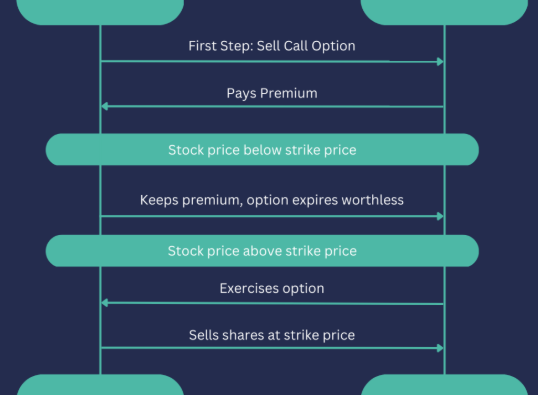
For individuals seeking a flexible and potentially rewarding career, options trading presents a compelling opportunity. With the right blend of education, discipline, and strategic thinking, it’s possible to build a career in this fast-paced financial niche. Whether you’re trading independently or affiliated with a financial firm, understanding the intricacies of options is crucial to long-term success. This blog outlines the essential steps to help you begin and grow in the world of options trading.
What Is Options Trading?
Options trading centers around contracts that grant the right—without the obligation—to buy or sell an underlying asset at a set price before a specific expiration date. These instruments are used for both speculation and hedging, offering potential gains as well as associated risks.
There are two basic types of options:
- Call Options: Allow the buyer to purchase an asset at a predetermined price. Traders use this when anticipating a price increase.
- Put Options: Allow the holder to sell an asset at a fixed rate, useful when expecting a price drop.
Understanding how these contracts function is fundamental, as they serve as the building blocks of more advanced strategies. Navigating the market effectively depends on your ability to read price movements, identify trends, and apply the appropriate strategy.
Steps to Become a Professional Options Trader
1. Build a Strong Educational Foundation
The first step is formal education. Pursuing a degree in finance, economics, or a related field provides valuable knowledge about market behavior, investment principles, and risk analysis. These programs also expose students to the tools and models used in modern financial environments.
2. Obtain Industry Certifications
Certifications add credibility and depth to your resume. Programs like the Chartered Financial Analyst (CFA) or Financial Risk Manager (FRM) equip aspiring traders with in-depth expertise in portfolio management, valuation techniques, and risk control. These credentials are widely respected in the financial sector and signal a serious commitment to the profession.
3. Gain Practical Market Experience
Theory alone isn’t enough. Aspiring traders should practice in a low-risk environment using demo accounts or simulation platforms. These tools mimic real-market conditions and allow users to test strategies and learn platform mechanics without financial exposure. This stage is crucial for building confidence and refining analytical skills.
4. Develop a Personal Trading Strategy
Every successful trader needs a clear and tested strategy. Your approach should align with your financial goals and risk tolerance. For instance, some traders focus on income generation through covered calls, while others pursue higher-risk, high-reward methods like straddles or spreads. A strategy tailored to your style enables consistency and better decision-making under pressure.
5. Understand Regulatory Requirements
Trading in the options market involves navigating a regulated environment. In the U.S., organizations such as the Securities and Exchange Commission (SEC) and the Financial Industry Regulatory Authority (FINRA) set the rules for trader conduct. It’s vital to stay informed about compliance guidelines to maintain integrity and avoid penalties.
6. Engage with the Trading Community
Joining trading forums or attending webinars can significantly enhance your learning curve. These communities are rich with real-time insights, mentorship opportunities, and shared experiences from traders at various skill levels. Networking with others often leads to discovering new tools, refining strategies, and gaining support during market fluctuations.
7. Commit to Lifelong Learning
The markets evolve constantly. To stay competitive, you must remain up to date with market developments, regulatory updates, and new trading technologies. Reading financial publications, participating in workshops, and continually experimenting with new methods will keep you sharp and adaptable.
Habits of a Successful Options Trader
- Start Small: Begin with minimal capital or paper trading to gain experience safely.
- Focus on Risk Management: Always set limits with stop-loss orders and use proper position sizing.
- Stay Informed: Monitor economic reports, earnings announcements, and global news that may affect market volatility.
- Stick to Your Plan: Avoid emotional reactions. A well-structured plan leads to better outcomes.
- Use Analytical Tools: Employ technical indicators and trading software to support your decision-making process.
- Review and Improve: Analyze your trades regularly to identify areas for improvement and adjust your strategy accordingly.
Final Thoughts
Becoming a proficient options trader involves more than just placing trades—it requires knowledge, discipline, strategic thinking, and continuous improvement. Start with a strong educational base, apply your skills in a risk-controlled environment, and build a trading plan that fits your financial goals. By staying focused, embracing ongoing learning, and applying risk management consistently, you can pave the way for a successful and sustainable career in options trading.









